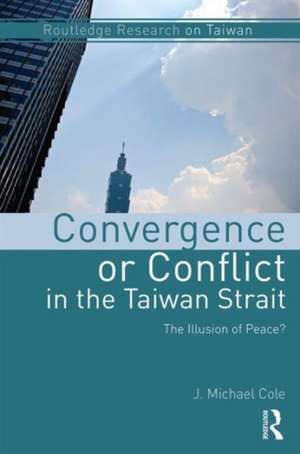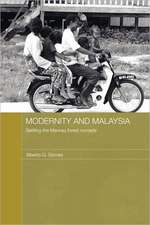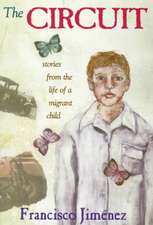Convergence or Conflict in the Taiwan Strait: The illusion of peace?: Routledge Research on Taiwan Series
Autor J. Michael Coleen Limba Engleză Paperback – 16 sep 2016
This book draws on years of on-the-ground research and reporting to shed light on the consolidation of identity in Taiwan that will make peaceful unification with China a near impossibility. It traces the causes and evolution of Taiwan’s new form of nationalism, which exploded in the form of the Sunflower Movement in 2014, and analyses how recent developments in China and Hong Kong under "one country, two systems" have reinforced a desire among the Taiwanese to maintain their distinct identity and the sovereignty of their nation. It also explores the instruments at China’s disposal, from soft power to coercion, as well as the limits of its influence, as it attempts to prevent a permanent break-up between the two sides of the Taiwan Strait. Finally, the book argues against abandonment and suggests that international support for Taiwan as it negotiates its complex relationship with China is not only morally right but also conducive to regional and global stability.
Acting as both a sequel and a rebuttal to earlier publications on Taiwan-China relations, this book takes an intimate and anthropological look at Taiwan’s youth and civil society, and applies this to traditional analyses of cross-strait politics. It will appeal to students and scholars of Taiwanese Politics, Chinese Politics, International Relations and Sociology.
| Toate formatele și edițiile | Preț | Express |
|---|---|---|
| Paperback (1) | 347.91 lei 6-8 săpt. | |
| Taylor & Francis – 16 sep 2016 | 347.91 lei 6-8 săpt. | |
| Hardback (1) | 819.48 lei 6-8 săpt. | |
| Taylor & Francis – 20 sep 2016 | 819.48 lei 6-8 săpt. |
Din seria Routledge Research on Taiwan Series
- 9%
 Preț: 934.94 lei
Preț: 934.94 lei - 24%
 Preț: 324.16 lei
Preț: 324.16 lei -
 Preț: 381.51 lei
Preț: 381.51 lei - 18%
 Preț: 999.19 lei
Preț: 999.19 lei -
 Preț: 398.60 lei
Preț: 398.60 lei -
 Preț: 407.78 lei
Preț: 407.78 lei -
 Preț: 350.68 lei
Preț: 350.68 lei -
 Preț: 449.41 lei
Preț: 449.41 lei -
 Preț: 483.49 lei
Preț: 483.49 lei - 18%
 Preț: 1006.92 lei
Preț: 1006.92 lei -
 Preț: 289.81 lei
Preț: 289.81 lei -
 Preț: 389.11 lei
Preț: 389.11 lei -
 Preț: 436.14 lei
Preț: 436.14 lei -
 Preț: 416.22 lei
Preț: 416.22 lei - 18%
 Preț: 1057.26 lei
Preț: 1057.26 lei -
 Preț: 431.35 lei
Preț: 431.35 lei - 26%
 Preț: 765.26 lei
Preț: 765.26 lei -
 Preț: 412.37 lei
Preț: 412.37 lei - 31%
 Preț: 763.78 lei
Preț: 763.78 lei - 26%
 Preț: 821.13 lei
Preț: 821.13 lei -
 Preț: 416.22 lei
Preț: 416.22 lei -
 Preț: 408.54 lei
Preț: 408.54 lei - 18%
 Preț: 1109.18 lei
Preț: 1109.18 lei -
 Preț: 285.25 lei
Preț: 285.25 lei - 18%
 Preț: 1111.51 lei
Preț: 1111.51 lei - 19%
 Preț: 256.78 lei
Preț: 256.78 lei - 18%
 Preț: 1003.43 lei
Preț: 1003.43 lei - 26%
 Preț: 822.01 lei
Preț: 822.01 lei - 25%
 Preț: 769.10 lei
Preț: 769.10 lei - 18%
 Preț: 1061.93 lei
Preț: 1061.93 lei - 18%
 Preț: 1173.97 lei
Preț: 1173.97 lei -
 Preț: 416.22 lei
Preț: 416.22 lei - 18%
 Preț: 1064.01 lei
Preț: 1064.01 lei
Preț: 347.91 lei
Preț vechi: 400.18 lei
-13% Nou
Puncte Express: 522
Preț estimativ în valută:
66.57€ • 69.70$ • 55.22£
66.57€ • 69.70$ • 55.22£
Carte tipărită la comandă
Livrare economică 10-24 aprilie
Preluare comenzi: 021 569.72.76
Specificații
ISBN-13: 9781138696242
ISBN-10: 1138696242
Pagini: 224
Dimensiuni: 156 x 234 x 25 mm
Greutate: 0.29 kg
Ediția:1
Editura: Taylor & Francis
Colecția Routledge
Seria Routledge Research on Taiwan Series
Locul publicării:Oxford, United Kingdom
ISBN-10: 1138696242
Pagini: 224
Dimensiuni: 156 x 234 x 25 mm
Greutate: 0.29 kg
Ediția:1
Editura: Taylor & Francis
Colecția Routledge
Seria Routledge Research on Taiwan Series
Locul publicării:Oxford, United Kingdom
Public țintă
Postgraduate and UndergraduateCuprins
Introduction PART 1: The Convenient Illusion 1. Orphaned and Forgotten 2. Chen the ‘Troublemaker,’ Ma the ‘Peacemaker’ 3. Peace on Whose Terms? PART 2: Taiwan’s Democratic Firewall 4. The Democratic Pendulum 5. China’s Assault on Taiwan’s Democracy 6. Hong Kong: The Canary in the Mineshaft 7. Crossing the Red Line: The Sunflower Phenomenon 8. A New Age: Civic Nationalism, Resilience, and Legitimacy PART 3: Convergence or Conflict? 9. No Turning Back: What Taiwanese Want vs. Beijing’s Expectations 10. The Trap that China Set for Itself 11. The Myth of Inevitability 12. Is War the Only Option? 13. The 2016 Elections: A Return to Uncertainty? PART 4: Why Taiwan Matters 14. The Last Free Refuge 15. The Folly of Abandonment 16. What Can Taiwan Do?
Notă biografică
J. Michael Cole is Senior non-resident Fellow at the China Policy Institute, University of Nottingham, UK, Associate Researcher at the French Center for Research on Contemporary China in Taipei, Taiwan, and a former analyst with the Canadian Security Intelligence Service.
Descriere
This book draws on years of on-the-ground research to shed light on the consolidation of identity in Taiwan that will make peaceful unification with China a near impossibility. It traces the evolution of Taiwan’s new form of nationalism and analyses how recent developments in China and Hong Kong have reinforced a desire among the Taiwanese to maintain their distinct identity. Acting as both a sequel and a rebuttal to earlier publications, it takes an intimate and anthropological look at Taiwan’s youth and civil society, and applies this to traditional analyses of cross-strait politics.















